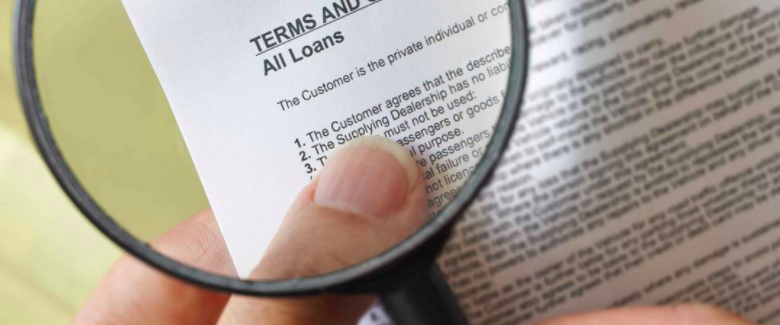Want to refinance into a record-low mortgage rate? Do these 6 things
Don’t settle for saving a little when you can save a lot.

Monkey Business Images / Shutterstock
This article was created by Wise Publishing. While Postmedia may collect a commission on sales through the links on this page, we are not being paid by the brands mentioned.
With mortgage rates at outrageous lows, it’s easy for homeowners to save money by refinancing. Saving a lot of money takes a bit more effort.
Industry experts say anyone paying more than 3% on a fixed-rate mortgage — or 0.75% more than current rates — should try to strike a better deal. The savings, often hundreds of dollars a month, can help you endure the financial fallout from the COVID-19 pandemic and pad your wallet for the future.
But when dealing with large sums of money, even small decisions can have a huge impact. Here are six tips to maximize your savings when refinancing:
1. Look your best as a borrower

boytsov / Shutterstock
Whether you’re refinancing with a new or existing lender, you need to prove your reliability as a borrower all over again. And Jessi Johnson, a Vancouver-based mortgage broker and realtor, says lenders are being skittish while the COVID-19 economy remains uncertain.
You’ll need a minimum credit score of 600 to qualify for refinancing, Johnson says — 650 if you want the best advertised deal. Check your credit score for free online and take steps to improve it, if you can.
Homeowners will also need to provide proof of regular employment and income, which will be challenging for many amid all the layoffs and shutdowns. Some lenders are even double-checking employment status just before closing to ensure you’re still on the payroll. If your employment status is rocky right now, gather whatever evidence you can to show you’re pulling a steady income.
While it’s a bit trickier to reassure lenders these days, you don’t have to worry about those harsh new rules from the Canadian Mortgage and Housing Corporation. Those only apply to new high-ratio mortgages, not refinancing.
2. Read the fine print

gemphoto / Shutterstock
Before you fixate on some crazy-low rate you’ve seen in the news, like HSBC’s 1.99% fixed mortgage, do a quick reality check. Not everyone can get a rate like that — and you might not want to.
Some advertised rates only apply to high-ratio borrowers who are paying extra for mortgage default insurance. Some might require a commitment to a term length that doesn’t work for you.
Plus, no-frills mortgages can come with restrictions. Your new agreement might lack prepayment privileges, portability or be prohibitively expensive to break early.
So don’t assume your new mortgage will work just like your old one. Pay attention to the details while you’re hunting for a low rate and think about what features matter to you.
3. Calculate your closing costs

lovelyday12 / Shutterstock
The whole point of refinancing is to save you money, so make sure you actually come out ahead after covering the cost of the transaction.
First off, there’s a mortgage registration fee of approximately $70 and legal fees that run between $700 to $1,000.
And if you’re switching lenders, expect to be hit with an extra discharge free. Prices range between $0 and $400, depending on your province and lender. Luckily, if your mortgage is big enough, your new lender may consider paying your legal fees for you.
But the biggest cost of refinancing comes from breaking a mortgage before the end of your term. Budget for a penalty equal to three months of interest for a variable mortgage or up to 4% of a fixed-rate mortgage. Depending on how much you’re borrowing and how much time you have left in your term, that penalty can be thousands of dollars.
Once you’ve tallied up the one-time cost of switching, use an online mortgage calculator to see whether a lower interest rate will save you more in interest over the course of your term.
4. Get ready to act fast

Dean Drobot / Shutterstock
The COVID-era economy is unstable; as a result, today’s amazing offers may not last for long. The quicker you get all your information in order, the quicker you can lock in your rate.
Here’s a document to-do list, so you’ll be prepared when your lender asks:
- Look up your credit score.
- Keep the most recent mortgage statement from your current lender handy.
- Gather pay stubs, bank statements and a letter of employment to prove you’re on the payroll.
- Round-up tax returns and notices of assessment from the last two years as proof of income.
- Get an informed estimate of your home’s current value.
- Provide proof that your property tax payments are up to date.
5. Protect your family from debt

rostock-studio / Shutterstock
A new mortgage is a good opportunity to remember the risk that thousands of dollars in debt can pose.
While it isn’t pleasant to think about, homeowners need to consider the possibility that something unexpected might happen to them. You want to ensure your family won’t have to panic about mortgage payments in the unlikely event of your death.
The best way to make sure your family will be financially secure is to take out a life insurance policy.
Some companies are hiking their premiums during the pandemic, but a good online comparison site will be able to find you an affordable rate. The amount you save by refinancing will likely be able to pay for a policy all on its own.
6. Prepare to break up with your lender

fizkes / Shutterstock
Loyalty is all fine and good, but the statistics say it’s better not to be married to your lender.
Companies know you don’t want to go through the trouble of shopping around — and they’re taking advantage. A Canadian government agency, the Office of the Superintendent of Financial Institutions, reported in January that lenders offer their returning clients rates that are 0.09% higher on average than rates available elsewhere.
Even that difference — applied to a $400,000 mortgage with a 20-year amortization at 2.25% versus 2.34% — would save you $1,651 in interest over five years. But that’s just the average.
“Many clients who are renewing are offered rates much higher than what we can get. Recently, we have been able to beat offers by as much as 0.34%. That is a massive difference,” says Jesse Abrams, co-founder and CEO of online mortgage brokerage Homewise.
If you don’t have time to hunt for the best mortgage yourself, you can get Homewise to work the market for you. The brokerage will negotiate on your behalf with more than 30 big banks and other lenders, completely free, and it only takes five minutes to apply.

